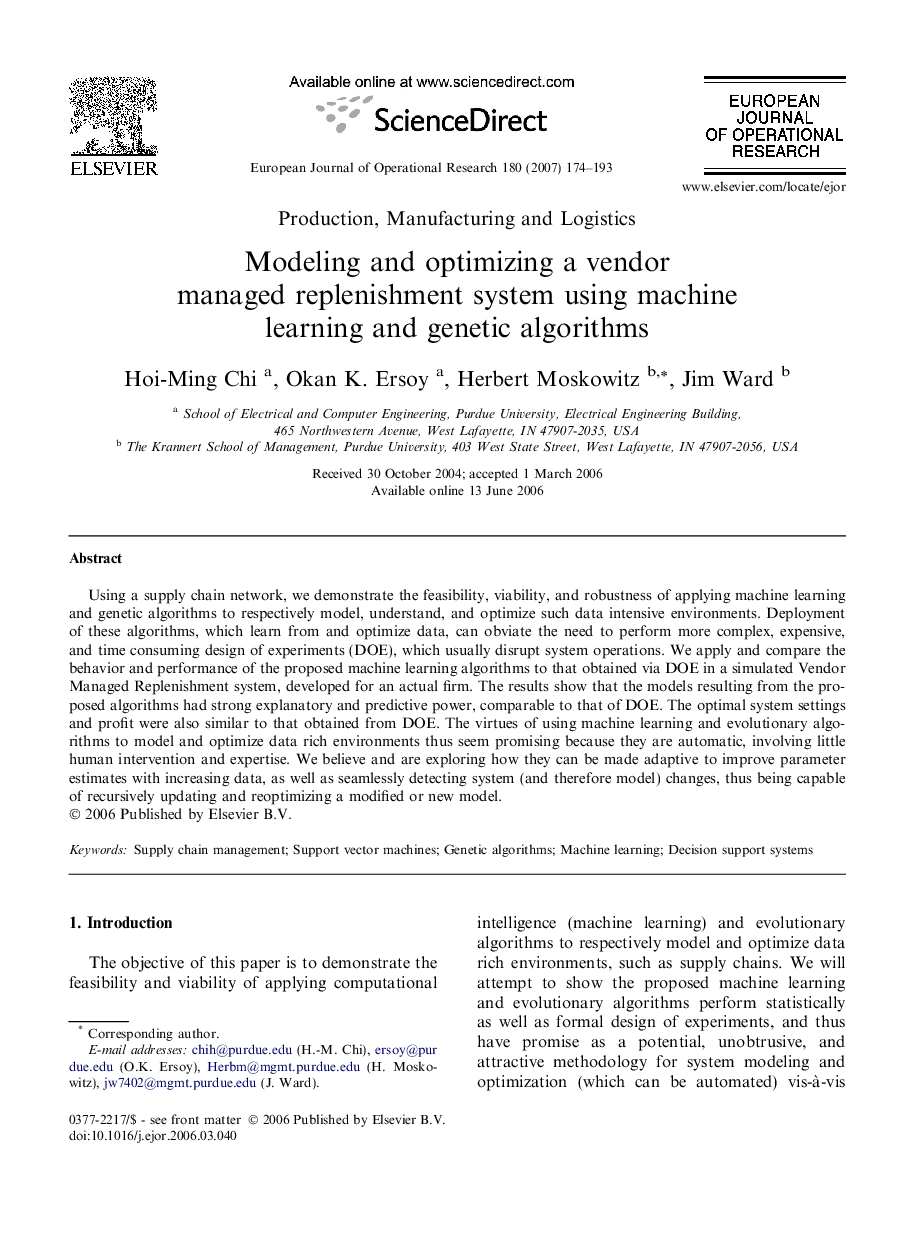| Article ID | Journal | Published Year | Pages | File Type |
|---|---|---|---|---|
| 477792 | European Journal of Operational Research | 2007 | 20 Pages |
Using a supply chain network, we demonstrate the feasibility, viability, and robustness of applying machine learning and genetic algorithms to respectively model, understand, and optimize such data intensive environments. Deployment of these algorithms, which learn from and optimize data, can obviate the need to perform more complex, expensive, and time consuming design of experiments (DOE), which usually disrupt system operations. We apply and compare the behavior and performance of the proposed machine learning algorithms to that obtained via DOE in a simulated Vendor Managed Replenishment system, developed for an actual firm. The results show that the models resulting from the proposed algorithms had strong explanatory and predictive power, comparable to that of DOE. The optimal system settings and profit were also similar to that obtained from DOE. The virtues of using machine learning and evolutionary algorithms to model and optimize data rich environments thus seem promising because they are automatic, involving little human intervention and expertise. We believe and are exploring how they can be made adaptive to improve parameter estimates with increasing data, as well as seamlessly detecting system (and therefore model) changes, thus being capable of recursively updating and reoptimizing a modified or new model.
